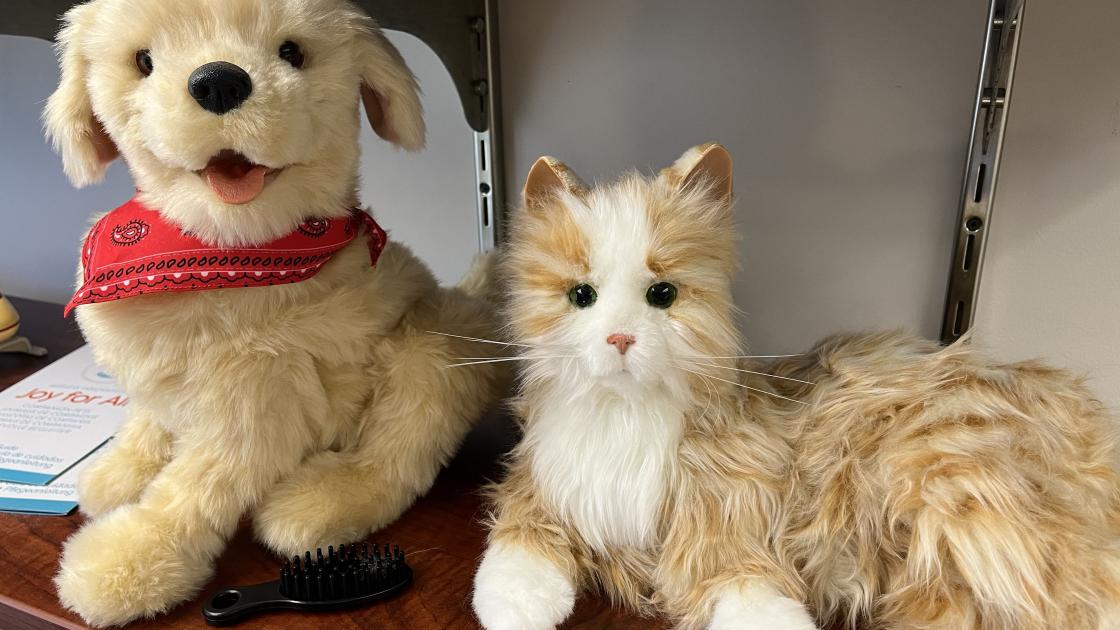
Breaking dementia’s stigma: What is Alzheimer’s and what can we do to help?
In recent years, the conversation around Alzheimer’s and dementia has shifted. While there is still progress to be made for the public's understanding of the disorder, there has been heightened awareness of what dementia looks like and how it affects someone.
It's permeated pop culture as well. NBC’s hit show “This is Us” featured a main character with Alzheimer’s, showing the intricacies and evolution of the disease. Families of celebrities like Tony Bennett have used their elevated platform to raise awareness of the challenges it can bring. Recently, Bruce Willis’ family publicly shared his diagnosis of frontotemporal dementia.
Of course, for many, seeing loved ones with dementia hits home the most as we see the evolution of personality and behavior up close. But what exactly is Alzheimer’s and what does it do?
What is Alzheimer’s?
Alzheimer’s disease is a brain disorder that slowly destroys memory, thinking skills, and eventually, the ability to carry out the simplest tasks. Changes in the brain alter how people communicate and function.
Many times, the terms Alzheimer’s and dementia are used interchangeably. However, Alzheimer’s is the most common type of dementia – around 70 percent of all dementia cases are Alzheimer’s disease. Other types of dementia include frontotemporal, Lewy body, and vascular.
Each affect the brain in different ways. While memory loss is the most commonly recognized symptom, behavioral and emotional issues, communication issues, movement problems, hallucinations and more can result from dementia.
Who does it affect?
Dementia can affect anyone, but certain people are more at risk. Most adults are diagnosed after the age of 65, but individuals in their 50s and even late 40s may develop symptoms. Dementia is relatively common for those in the late 60s and older – 1 in 9 individuals over the age of 65 in the United States have dementia.
Women are twice as likely to develop dementia than men, and Black individuals are twice as likely as white individuals. Those with diabetes, hypertension, obesity, and are at higher risk as well.
Just because a parent had dementia does not mean it will be passed down, however it does seem like some cases are hereditary. The overwhelming risk factor is age.
How do I know if I have it?
Many people who have Alzheimer’s or dementia are not aware that they have it. That makes it particularly hard to comprehend and diagnose. Many times, those with dementia cannot come to terms with a diagnosis since they cannot recognize changes to their behavior, memory, or communication. Often, help in recognizing symptoms needs to come from a loved one.
If someone loses their keys, forgets someone’s name, or walks into a different room and can’t remember why, those are all parts of normal aging. However, forgetting the way home from work, not remembering the name of a household item like a watch or pen, or unable to perform tasks at a job that have been routine for years can be a more serious sign of cognitive impairment.
Symptoms can be similar between different forms of dementia, and having more than one form of dementia is possible as well. Seeking professional medical helps diagnose the specific issue and helps plan for the journey ahead.
What does treatment look like?
Consulting a medical professional can be a difficult, but necessary, first step. Diagnosing the issue and figuring out a personalized plan is critical to better understanding the disorder and improving their quality of life.
Currently, there is not a cure for Alzheimer’s or dementia. Clinicians recommend a healthy diet, exercise and interaction with others – what’s good for the body is good for the brain. Alzheimer’s and dementia do not reverse course. That makes recognizing symptoms and an early diagnosis key to understanding the changes that are taking place.
Research and clinical trials, including those at the Smith Alzheimer’s Center at SIU Medicine, are in constant motion to help develop better and more effective treatments.
What can our community do?
Interacting with someone who has dementia can be startling for someone new to the disease. Social norms are broken and responses may differ wildly from what is expected. But treating people with dementia with dignity and care is critical.
When talking to someone with dementia, make eye contact, keep a warm tone, use their name, and saying simple instructions are helpful. Asking them to choose between two things may be difficult, but phrasing the start of a question, “Would you like…” and picking one activity may be helpful. Modify activities to something they can enjoy, including talking a walk, coloring a picture together, or giving them simple instructions for helping cook a meal together.
Most importantly, validate their concerns. Even if what they’re saying doesn’t make sense, agreeing with them can help solve the true source of irritation.
The Dale and Deborah Smith Center for Alzheimer’s Research and Treatment at SIU Medicine is located in Springfield. To schedule an appointment, please visit siumed.org or call 217.545.8000.



